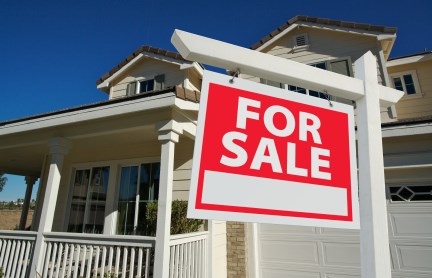Sales of detached homes for August are predicted to be down by as much as 55 per cent compared to the same time last year, thanks, in part, to the new foreign home buyers tax, according to Steveston realtor Sean Lawson.
In fact, Lawson argues the tax, which tacks on another 15 per cent to the purchase price for non-residents, means Richmond has likely reached its high watermark for real estate prices, and the August slump may extend into the fall.
“The market was already slowing and they (government) dropped this bomb on it without any real consultation with the industry,” he said, adding it has dour consequences for the overall economy. “To kick out two of the pillars – construction and real estate – that along with tourism were doing well was ridiculous and foolhardy. It was a purely political move that is likely to backfire on the government.”
The B.C. government brought in the tax Aug. 1 in an attempt to address soaring housing prices that pushed local buyers out of the market.
Vancouver realtor Steve Saretsky said he has been watching market trends closely since the foreign buyers tax was implemented and said it is impossible to know for sure how much the tax has slowed sales in the Richmond area where government tracking of real estate transactions showed about 19 per cent of homes were purchased by non-residents — the highest concentration in Metro Vancouver.
“The implementation of the tax put an immediate halt on peoples’ plans,” Saretsky said via email. “Everyone wants to see what’s going to happen next before making any decisions. It changed the mentality of locals from a ‘fear of missing out’ to maybe I should wait.’”
And that is reflected in the sales figures so far this month.
Citing MLS (Multiple Listing Service) data, Saretsky said sales of detached homes in Richmond have dropped dramatically in the first couple of weeks of August. During that time, just 12 properties were sold.
“A few more should trickle in, but I wouldn’t expect that number to be over 20,” he said, “which means, if it continues, August would have roughly 40 sales. There were 89 total sales in August 2015.”
Add that possible slowdown to the drop off in July, when 125 detached homes were sold, compared to 217 during the same time in 2015, and there is a reason to speculate on a further downward slide.
“Here’s what I see, things are clearly trending downwards,” Saretsky said. “After basically hitting a 40 per cent increase in price at one point how much further can we really expect it to go up? Real estate is cyclical. I don’t want to make any predictions, but if you look at all the data and the trends over the last four months, it’s certainly not encouraging. I would expect things to continue cooling, however September is generally an active month.
“If September is another slow month, then the writing is on the wall,” he added.
Real estate will rebound
Not subscribing to the doom and gloom prospect is Richmond realtor Austin Kay who has worked locally in the industry for 22 years and has seen it endure and adjust to other external forces.
“I don’t know if it (market) will come back as strong as before, but we’ve been through situations like the U.S. financial crisis back in 2008. Then, our local markets took a break of about three months to see how it would impact us,” Kay said, adding that particular bump in the road, plus concerns about the HST, which was introduced in B.C. back in 2010, did not have much of an effect. “Till now, things have been pretty strong for us in the Lower Mainland.
“We’re near the end of summer and things traditionally cool off at this time of year anyway,” he said. “This 15 per cent tax just made things a little bit cooler.”
One reason for optimism is the region’s continued status as a desirable place to call home.
“We are one of the top 10 places in the world to live and as of recently, the last few years, we’ve been getting close to being on par with other places in the world that are very popular,” Kay said.
Kay said it is too early to make any dire predictions.
“We’re in a period of transition right now where, because of the 15 per cent tax being retroactive, we’ve got deals that are supposed to come down the pipeline. Some of them may not happen. Some will.”
Plus, the relatively narrow focus of the foreign buyers tax will likely not end up having a long-term effect, he added.
“Certain categories of homes will experience more of an impact. But overall, a majority of the transactions will happen with people who are residents,” he said. “At the end of the day people have to buy and sell for one reason or another, so things will move along again.”



